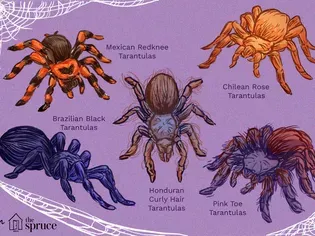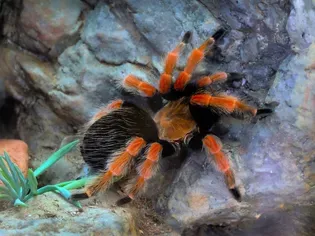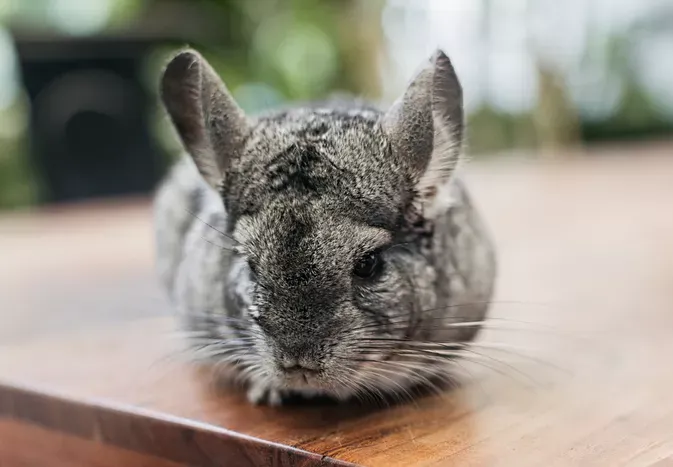11 Best Tarantula Species to Keep as Pets
Updated on 04/26/24

Embark on an Enchanting Journey into the World of Tarantula Pet Keeping
In the realm of exotic pets, tarantulas stand out as captivating and low-maintenance companions. With their intriguing behaviors, stunning appearances, and relatively easy care requirements, these fascinating creatures have captured the hearts of hobbyists worldwide.
If you're considering welcoming a tarantula into your home, you're in for a thrilling adventure. This comprehensive guide will introduce you to 11 exceptional tarantula species that excel as pets, showcasing their unique attributes, care requirements, and intriguing personalities.
Before You Dive In: Essential Considerations
Before embarking on your tarantula journey, it's crucial to assess your comfort level with these creatures and ensure you can provide a suitable environment for their well-being. Consider the following factors:
* Size and Temperament: Tarantulas vary considerably in size and temperament. Some species are large and docile, while others are smaller and more defensive. Choose a species that aligns with your preferences and handling experience.
* Enclosures: Tarantulas require specialized enclosures that mimic their natural habitats. Provide ample space, ventilation, substrate, and hiding places to meet their environmental needs.
* Feeding: Most tarantulas are carnivorous and feed on insects or small vertebrates. Research the feeding habits of each species to ensure you can provide an appropriate diet.
* Handling: Handle tarantulas with care and respect. Use slow, gentle movements and always support them from below. Avoid handling venomous species unless you have extensive experience.
11 Tarantula Species that Shine as Pets
Now, let's dive into the captivating world of tarantulas and explore 11 exceptional species that will grace any exotic pet collection.
1. Mexican Red Knee Tarantula (Brachypelma hamorii)
* Size: Up to 6 inches in body length
* Temperament: Generally docile and beginner-friendly
* Appearance: Striking reddish-brown coloration with black markings
* Care Requirements: Temperature of 75-80°F (24-27°C), humidity of 60-70%
2. Curly Hair Tarantula (Tliltocatl albopilosus)
* Size: Around 6 inches in body length
* Temperament: Shy and skittish, but not aggressive
* Appearance: Dense, curly brown hairs covering its body
* Care Requirements: Temperature of 75-80°F (24-27°C), humidity of 60-70%
3. Cobalt Blue Tarantula (Haplopelma lividum)
* Size: Up to 5 inches in body length
* Temperament: Can be defensive and quick-tempered
* Appearance: Stunning iridescent blue coloration
* Care Requirements: Temperature of 75-80°F (24-27°C), humidity of 70-80%
4. Green Bottle Blue Tarantula (Chromatopelma cyaneopubescens)
* Size: Around 5 inches in body length
* Temperament: Nervous and skittish, but rarely bites
* Appearance: Vibrant blue coloration with a metallic sheen
* Care Requirements: Temperature of 75-80°F (24-27°C), humidity of 70-80%
5. Pink Toe Tarantula (Avicularia avicularia)
* Size: Up to 5 inches in body length
* Temperament: Generally docile and beginner-friendly
* Appearance: Black body with vibrant pink tips on its feet
* Care Requirements: Temperature of 75-80°F (24-27°C), humidity of 70-80%
6. Avicularia versicolor (Green Tree Tarantula)
* Size: Around 5 inches in body length
* Temperament: Nervous and flighty, not recommended for handling
* Appearance: Iridescent green coloration with long, thin hairs
* Care Requirements: Temperature of 75-80°F (24-27°C), humidity of 70-80%
7. Orange Baboon Tarantula (Pterinochilus murinus)
* Size: Up to 4 inches in body length
* Temperament: Defensive and quick to bite, requires experienced handling
* Appearance: Bright orange coloration with black markings
* Care Requirements: Temperature of 75-80°F (24-27°C), humidity of 60-70%
8. Grammostola Pulchra (Chilean Rose Hair Tarantula)
* Size: Up to 8 inches in body length
* Temperament: Generally docile and slow-moving
* Appearance: Brown coloration with a copper-colored sheen
* Care Requirements: Temperature of 75-80°F (24-27°C), humidity of 60-70%
9. Brachypelma boehmiae (Bohemian Giant Tarantula)
* Size: Up to 6 inches in body length
* Temperament: Docile and easy to handle
* Appearance: Black coloration with reddish-brown patterns
* Care Requirements: Temperature of 75-80°F (24-27°C), humidity of 60-70%
10. Theraphosa blondi (Goliath Bird-Eating Tarantula)
* Size: Up to 12 inches in body length
* Temperament: Defensive and should be handled with extreme caution
* Appearance: Massive size and brown coloration
* Care Requirements: Temperature of 75-80°F (24-27°C), humidity of 80-90%
11. Lasiodora parahybana (Brazilian Salmon Pink Tarantula)
* Size: Up to 8 inches in body length
* Temperament: Can be defensive but generally docile
* Appearance: Pinkish-salmon coloration with black markings
* Care Requirements: Temperature of 75-80°F (24-27°C), humidity of 60-70%
Conclusion: Embracing the Fascination of Tarantula Keeping
Tarantulas offer a captivating and rewarding experience for those seeking an extraordinary pet. Whether you're drawn to their stunning appearances, intriguing behaviors, or relatively low-maintenance care, these enigmatic creatures provide a unique and educational connection to the natural world.
By choosing a species that aligns with your preferences and providing meticulous care, you'll embark on a fulfilling journey as a tarantula keeper. Observe their fascinating behaviors, marvel at their intricate beauty, and appreciate the profound connection you forge with these captivating creatures.
Remember, responsible pet keeping involves understanding and meeting their specific needs. Always prioritize the well-being of your tarantulas, and never hesitate to seek professional guidance if necessary.
Explore More Pets

Exotic Pet Species
Should You Keep a Chimpanzee as a Pet?

Exotic Pet Species
Should You Keep a Raccoon as a Pet?

Exotic Pet Species
How to Care for a Pet Mexican Red-Knee Tarantula

Exotic Pet Species
12 Best Exotic Pets for Apartment Living

Exotic Pet Species
Best Foxes to Keep as Pets

Exotic Pet Species
Should You Keep a Northern Flying Squirrel as a Pet?

Exotic Pet Species
Should You Keep Stick Insect as a Pet?

Exotic Pet Species
Should You Keep a Big Cat as a Pet?